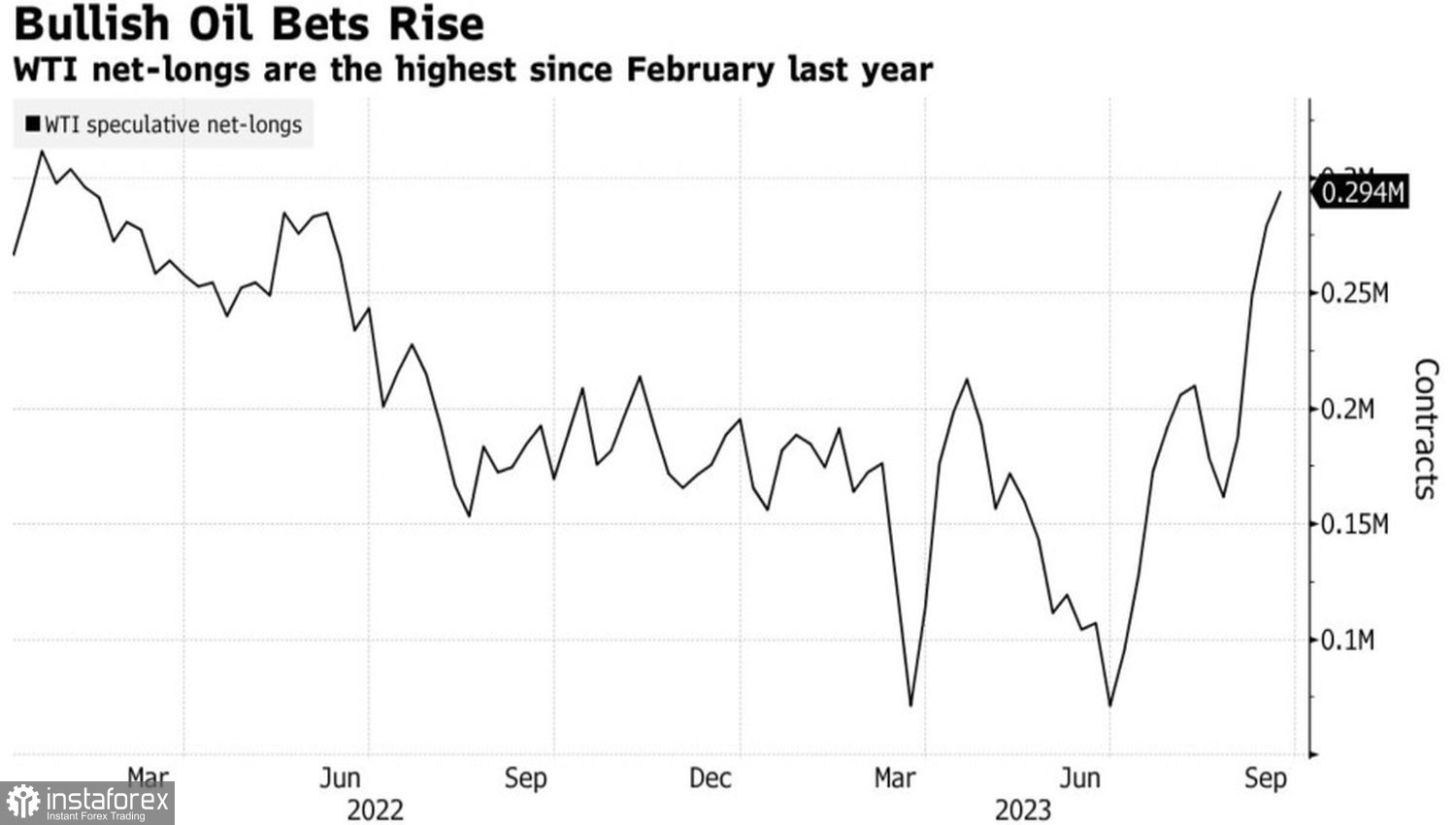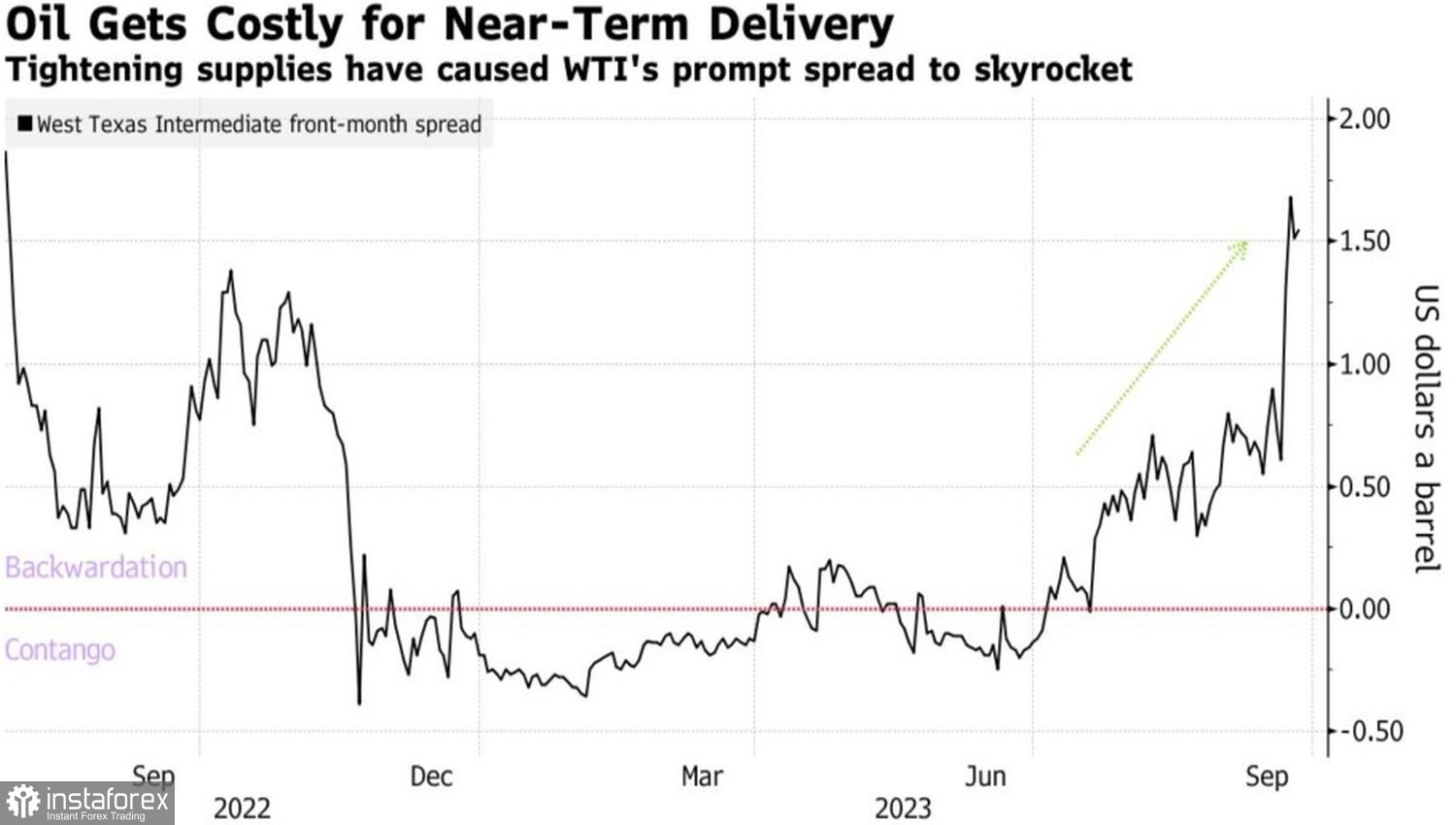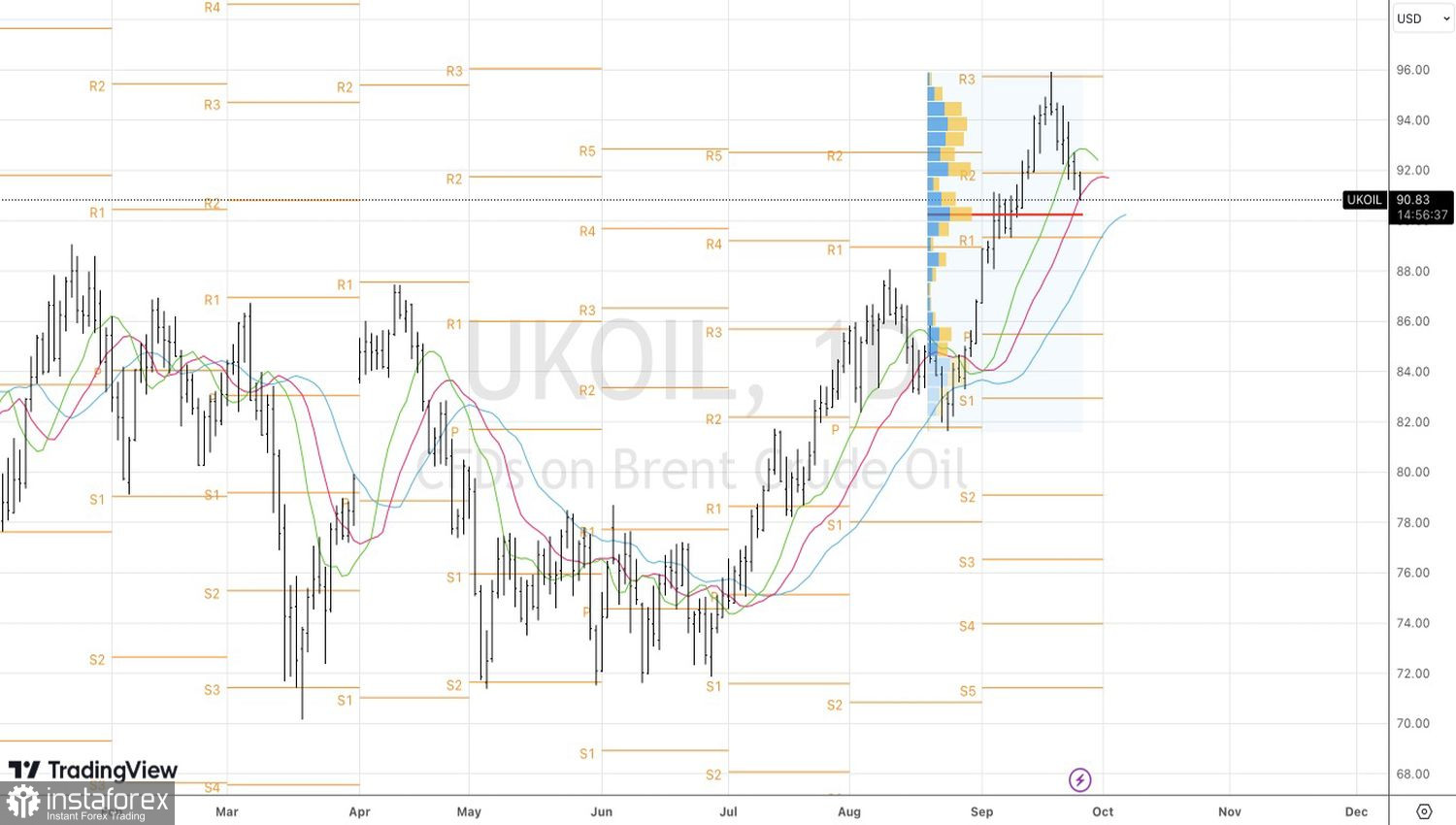The higher you climb, the harder you fall. Especially if the ascent is very rapid. When, at the end of the second decade of September, Brent quotes exceeded the $95 per barrel mark, there was no shortage of bullish forecasts. Goldman Sachs raised its estimates for the North Sea grade from $93 to $100, while JP Morgan shocked the markets with a statement that black gold could jump to $150 per barrel and recommended buying shares of oil companies. However, only a week has passed, and there are not many traces left of the previous optimism.
The rally in Brent to the 10-month highs was based on a reduction in supply and hopes for an acceleration in global economic growth. The reduction in OPEC+ production is well known. At the same time, China's massive stimulus, expectations of an 8-day Golden Week holiday, and positive retail sales and industrial production statistics acted as catalysts for the rise in the North Sea grade. China can help export-oriented Europe, and the U.S. economy is already strong. Why shouldn't global demand for oil increase? Speculators increased their net long positions and eventually paid the price for their euphoria.
Dynamics of speculative positions on oil

Investor sentiment changed significantly after the news that China Evergrande had missed payments on its own bonds. Beijing actively supports the troubled real estate sector, and it began to send positive signals, but here comes negative news from the largest player. Perhaps, in China, not everything is as good as expected.
The Federal Reserve's intention to keep the federal funds rate low for a long time and possibly resume the tightening of monetary policy has become another source of concern. Talk of a recession is back in the market because no one has canceled the economic cycle. Moreover, the best quarterly growth for Brent since the beginning of 2022 may contribute to the slowdown in U.S. GDP. According to Goldman Sachs' forecasts, the pace of U.S. economic growth will slow to 0.4% in the fourth quarter of 2023 and to 0.2% in the first quarter of 2024.
And there's also the factor of a possible U.S. government shutdown. Moody's has warned that, in such a scenario, the U.S. credit rating could be damaged, causing a tsunami in financial markets and negatively impacting black gold. However, the oil market sentiment remains bullish, as evidenced by the expansion of backwardation.
Dynamics of spreads on oil futures contracts


Investors view the deterioration of the macroeconomic backdrop as a temporary phenomenon. Talk of a recession in the United States has been going on for a long time, but there is still no downturn. The government's intention to do everything in its power to achieve a +5% GDP target will likely accelerate China's economy.
From a technical standpoint, the bounce strategy from the $95.8 per barrel resistance worked well thanks to the formation of a pin bar. Nevertheless, the trend remains bullish, so we will use the rebound from $90.3 and $89.3 for profit-taking on shorts and a reversal.





















